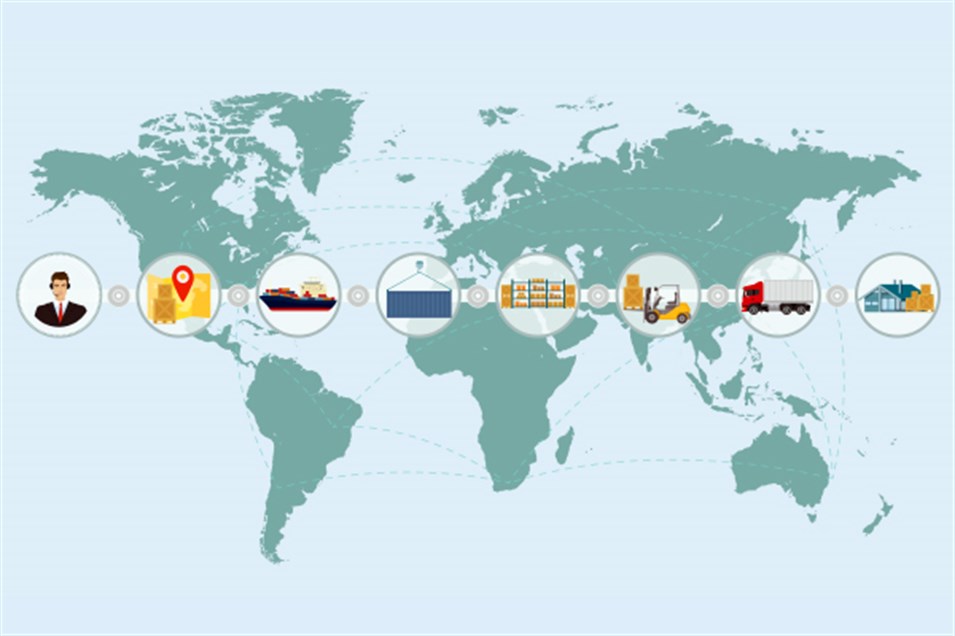In a world that is high on demands and has changing dynamics , logistics that tick the boxes of hassle-free delivery, convenience, efficiency, cost-effectiveness, timeliness, customer satisfaction, and environmental viability can be the key differentiator for businesses that want to remain competitive. These parameters can be best met when the logistics function in a company is closely linked from end to end.
Logistics plays a vital role in supply chains in delivering customized goods to customers, at desired destinations, with unique specifications. The process ensures proper handling of goods from planning to creating and monitoring flows of goods and information, which essentially cover a complex set of processes. These range from sourcing raw materials, vendor management, storage and warehousing, stock keeping, goods inspection, tracking and delivering, and even coordinating returns.
Understanding end-to-end logistics
In end-to-end logistics, the entire supply chain process works as one cohesive entity. This means that logistics experts are involved at every step of the journey from designing the product, procuring raw material, getting it to production, and leading up to delivering the product to the customer. After-sales service and reverse logistics may also be integrated if the business demands it.
With increased digitalization, customers expect the ease of doing business and transparency they are experiencing in e-commerce as it has become the norm of logistics. By implementing a logistics function that links every touchpoint of the supply chain and incorporates an end-to-end solution, businesses gain several advantages. It simplifies the internal operations, streamlines all the functions to enable efficient operation and cost savings, and optimizes the supply chain logistics, giving the organization an edge over competitors.
Here’s is decoding how end-to-end logistics can help a company conduct business like a well-oiled, well-connected machine, connecting destinations and delivering excellence.
Multiple benefits of an integrated end-to-end logistics
- Flexibility and scalability
- End-to-end logistics solutions offer flexibility and scalability, ensures supplies and distribution of resources, that can be managed as per the current demands of the business. This can, in turn, save costs of warehousing, inventory, transportation, and the like, strengthening the business funds and flexibility to invest in other key areas.
- Faster deliveries
- To pursue and retain the digitally savvy customers, companies need to ensure faster deliveries through an optimized and integrated end-to-end logistics solutions.
- Efficiency and cohesiveness
- Modern supply chains require agility and the ability to operate successfully even enduring the volatile conditions can be challenging. This need is fulfilled by the efficiency and cohesiveness with which end-to-end logistics can operate amid market disturbances.
- Greater visibility of data
- End-to-end logistics solutions provide greater visibility of data across all connected processes and departments. Any delays or unforeseen circumstances in one area can be predicted and communicated to other areas using this data. It ascertains risk mitigation, without disrupting the supply chain logistics.
The typical hassles and pain points faced by businesses are reduced or eliminated because the complete logistics cycle, from procurement to distribution to transport to final delivery to the customer, is planned and managed in a coordinated, collaborative manner at every stage.
Sustainability and green logistics is the future
The Covid-19 pandemic caused global disruption to supply chains and tested the competitiveness and resilience of businesses across the globe. As revealed in the 2020 IFC report, “Today’s global value chains require greater resilience and efficiencies in the flow of goods between and within countries. These can be achieved by firms outsourcing their logistics functions to third-party logistics services providers, especially those with integrated, end-to-end solutions capabilities.”
With growing awareness of the environmental impact of supply chains, corporate emphasis is shifting towards implementing sustainable practices that are both financially viable and help reduce their carbon footprint. Businesses with end-to-end logistics solutions have such practices cemented along with their supply chain activities.
End-to-end logistics solutions offer organizations a real chance to gain the elusive edge over the competition by making them more flexible and responsive to market fluctuations enforced by environmental, social, and internal factors.






